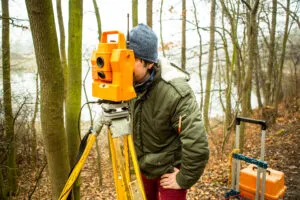Do you remember that last weather alert you received on your mobile phone? There’s a good chance it came from Baron Services’ weather app, powered by MapQuest for Business. If you’re one of the millions of users of local television stations’ private-labeled weather apps powered by Baron, MapQuest for Business helps to determine if you’re in the path of severe weather.
It’s all about the weather
Huntsville Alabama-based Baron Services is a leader in weather intelligence data. Baron partners with a wide array of customers spanning from television to the U.S. military and foreign governments. At any given time, thousands of general aviation pilots even depend on Baron for weather data needed to circumvent potentially dangerous flight conditions.
A critical need for location accuracy
Due to issues with reliability and accuracy with Baron’s previous provider, Baron looked to replace its geocoding APIs in 2012. Since severe weather can be extremely isolated to a very small geographic area, location accuracy is of utmost importance. People at risk of being in the direct path of hazardous weather need ample warning, while those outside the path don’t need false alarms that might cause them to question forecast accuracy. Baron Services’ Software Department Manager, Sherman Wilcox, reflects on the importance of geocoding accuracy in their apps, “Whether it’s a tornado warning, flash flood, lightning or other severe weather, when we send out an alert it’s extremely important that the people in the path of that weather get notified. That’s where location accuracy is critical.”
Powered by MapQuest for Business
After an extensive search, Baron chose MapQuest for Business as their new geocoding provider. According to Wilcox, “MapQuest is better and much more accurate than our previous provider.” MapQuest geocodes user addresses within Baron’s apps, translating even the most rural address into latitude and longitudinal coordinates, which are used in meteorological data. The end result is that users know exactly whether they or their loved ones are in the path of any significant weather system.
Enabling ‘narrowcasting’ to specific users
In a video on Baron’s website, Chief Meteorologist Dave Freeman, with KSNW TV in Wichita, Kan., commented on the precision of the location data in Baron’s application, saying that it is “highly-specific; with geofencing you are able to target the people in the path of dangerous weather conditions – and only those people. So it is very much, ‘narrowcasting’ critical information to just the people who need to know about it.”
A wise decision
Wilcox is very pleased with his decision to be using our Geocoding API. “MapQuest is a good company to work with – they’re very reliable and have excellent customer service. I can’t ask for much more than that. I would definitely recommend MapQuest to anyone looking for similar geocoding capabilities.”


